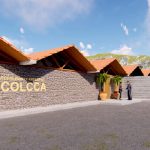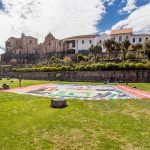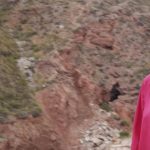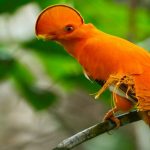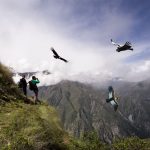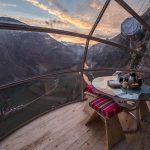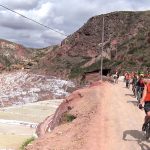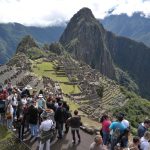The project to save macaws in Peru’s Amazon has always been based at Tambopata Research Center (owned by Rainforest Expeditions).
Through a long-term multidisciplinary study of the natural history, conservation and management of macaws and large parrots.
The main topics of study included:
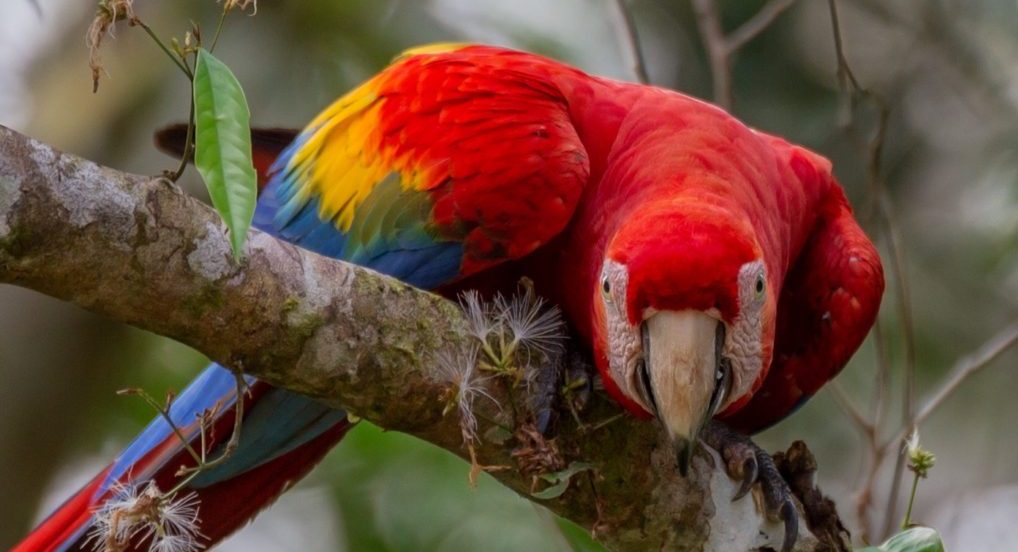
Rainforest Expeditions has therefore supported the macaw project since its foundation with food and lodging for the researchers.
On the other hand, logistical support and funds for researchers’ salaries make this marvelous job of macaw survivor a reality.
Visitors have also commented on their experience: “By boat upstream to the Tambopata Research Center, the amazed to see more than 100 macaws eating clay, flashing in the sky in red, green, blue and yellow, screaming so loudly that you couldn’t hear someone talking to their side. It feels like paradise.
On the other hand, Eduardo Nycander – Founder of Rainforest Expeditions commented on the Tambopata Macaw Project.
He told the story of how he first came to Tambopata and how he decided to save the macaw population of the region.
How come someone can’t fall in love with this wonderful place?
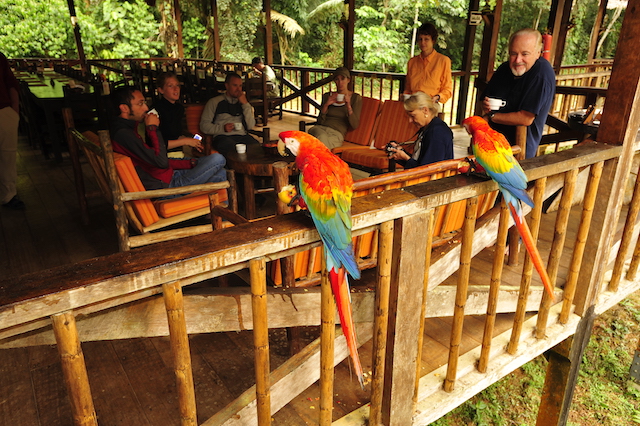
Macaws are the world’s most endangered large family of birds. Threats include hunting, selective logging and illegal pet trade.
That’s why Rainforest Expeditions starts here with macaw conservation.
To achieve this goal, they designed and implemented artificial nests for macaws hanging from three branches.
In 1999, the Tambopata Macaw Project led by Dr. Donald Brightsmith inherited from its founder Eduardo Nycander a group of 12 natural and artificial nests around the Tambopata Research Center.
Since then, the total number of nests has grown to more than 30. Since 1999, 985 eggs have been laid and 516 chicks have been hatched.
In a continuation of Rainforest Expeditions’ dream, the Brightsmith team has developed, tested and scientifically documented new methods that can be used for the conservation and management of macaws in Peru and the Americas.
In Rainforest Expeditions you can keep in touch with this incredible species through cameras called MacawCam.
Proyecto Guacamayos welcomes volunteers throughout the year. If you are interested in volunteering, please contact us at [email protected] and we will send your application to the principal investigators.




